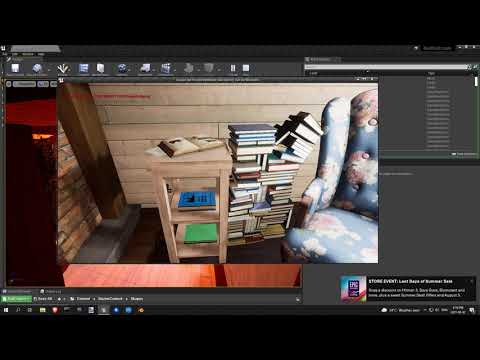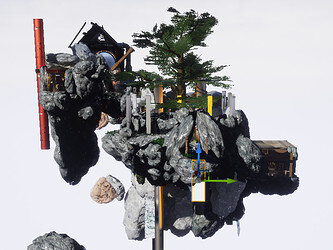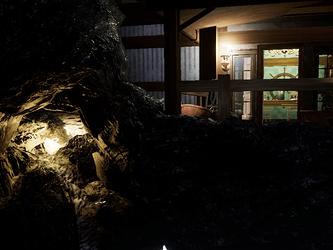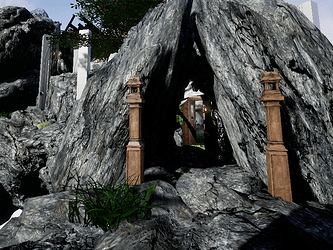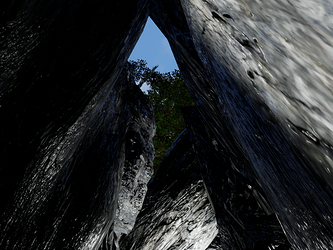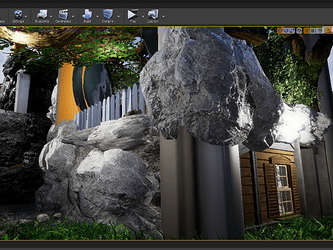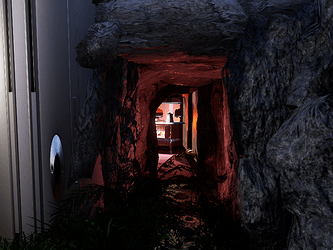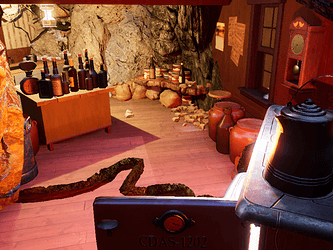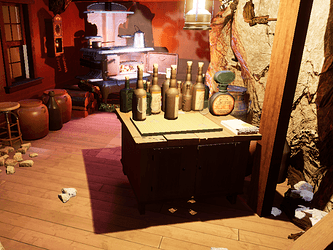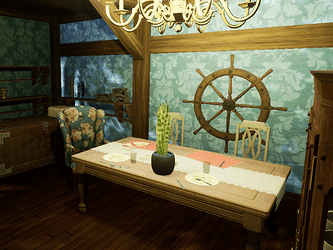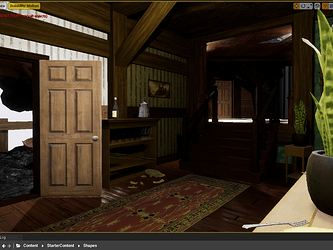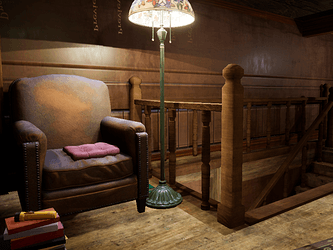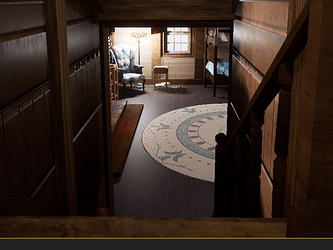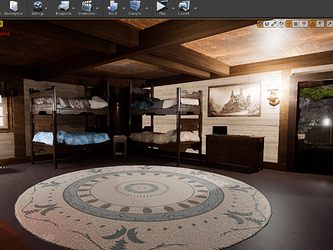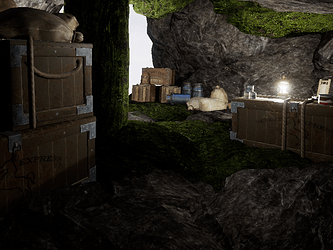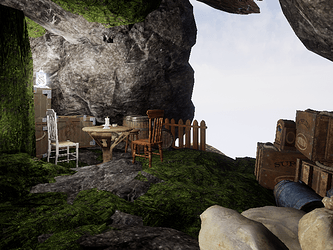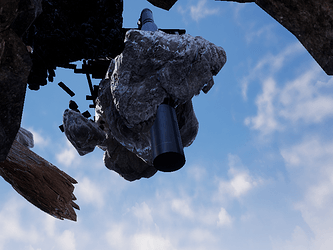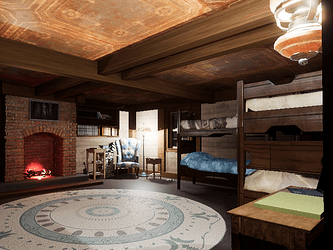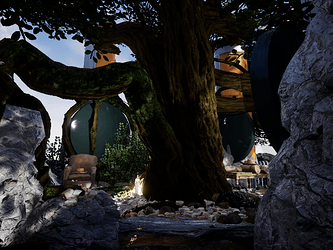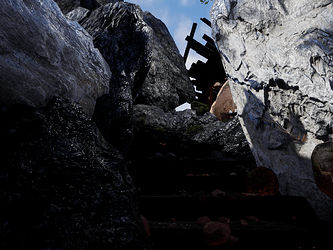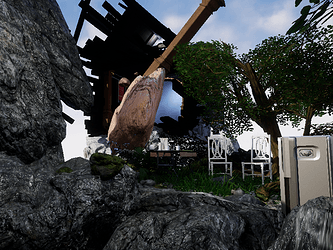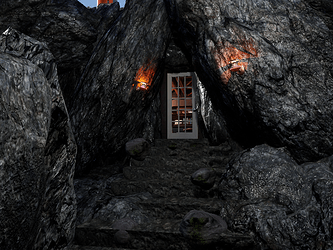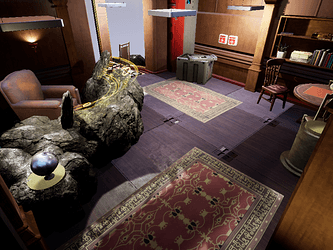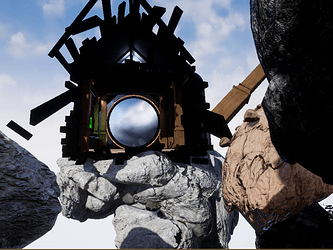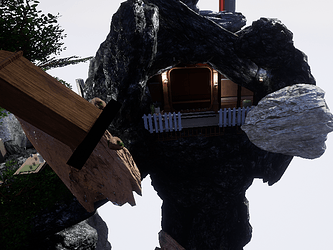Hello everyone,
I have finally finished my Building Escape project. It has been a little over a month. Note that I did this only an hour or two at a time during the weekdays. I got all the basic things working and spent much time on level design and layout. Below you will find the video, a great many screen shots, and then “What I have learned”.
Video (Sadly, no sound at this time):
Pictures:
What I have learned:
8 points discussing that I am happy with the results, more comfortable with the game engine, but need to focus on Coding, not artwork.
1. My ignorance:
I am ignorant
Coding is hard and my enthusiasm revealed my ignorance. I do not see this as a deterrent, but rather a priority straightener.
2. Game Engine:
I am more comfortable with it
I learned more about the game engine and how to use its basic function comfortably. That was in part why I spent so much time on level design.
3. Level Design:
Satisfied with my blend of themes and level layout
I wanted to see if I could mix different free assets and styles that I picked up each month in order to create one unique one: I used a Western Theme, Sci-fi Hall, Tree Spline, the basic set, and a house interior set. I was hoping to invoke both a familiar comfortable natural atmosphere with a strikingly alien one, with each blending into the next, complementing while emphasizing the each other. My inspirations were derived from Myst (the first one) and Obduction (from the same company).
4. Scope:
It is easy to spend too much time in the details... such beautiful details
I now have a much better grasp about the scope in level design.
- I put in tons of detail that, in the end, will go unnoticed. It is too easy to be an artist working on a single portrait, rather than a level designer working on a larger whole. I found that once I play tested the level much of the beauty went unnoticed. They look good in screenshots, but are not as striking when in motion. Secret gems are nice to have, but too much will consume time. Having at least ten in every corner is not a good use of time.
- I have a better grasp on how long it could take to make a detailed level, graphically anyways. It has helped me begin forming an idea how much time and effort I should put into a level. With a little less detail, I probably could have saved myself hours, if not days of work.
5. Perspective:
I like 3rd person perspective.
I think I prefer 3rd person games, or 3rd person-Isometric. It has always been a preference since I have always enjoyed rpg’s, particularly turn-based tactical (not Japanese style) or real-time with a pause. But I don’t mind real-time rpg’s or adventure games. These are not as close up and you don’t need to spend as much time on a level’s detail. The only issue I can foresee is that most of them are more system intense. That means more coding, but what draws me to many games are their complex systems.
6. Focus:
C++is an art, but not a visual art- time to focus on C++ rather than design.
I have three other courses that deal with the artistic side of games: Traditional drawing, 3d modelling, and music theory. I do not need to add level design to this list, otherwise I will lose C++ into the endless sea of design. Since I am still learning C++, basic prototyping will be fine enough. I do not regret having spent so much time on design. I was able to prove to myself that I have aesthetic sense enough to make a decent enough looking level. However, my other pursuits will cover that end, making “good” level design redundant until later.
7. C++ Fundamentals Course:
I will do the C++ fundamental's course next, plus some consideration for those who want to begin coding.
My next course with C++ will probably be this one. If I were to do my courses over, I probably would have started with blueprints, then when C++ fundamentals came out do that, then use this one. This is the suggested route I would give anyone: Blueprints basics (Which gives you a basic run through the engine), C++ fundamentals, C ++ and Unreal (And you can skip the engine parts having learned them from the Blueprints course).
8. Lighting Costs Alot:
Lighting slows things down, so turn its quality down.
As you could probably imagine, this game was running very slow for me. I played with my settings and found that if I turned shadows down to low, I could bump everything else up to epic. This made me realize how important, but how costly lights are.
Course Suggestions:
I have some considerations for future courses-
1. Engine Course: It would be good to have a course specific to the engine and level design, all the code we would need would be right there in our hands. The point of this section would be to know how to utilize the engine and code as if we were level designers, not programmers.
2. Code Courses: Conversely, it would be nice to have a separate blueprints course and a C++ course that focuses on Unreal only as a coder. The level would have all its design components ready, but would be devoid of all code, or it needs different aspects of code added or modified. C++ Fundamentals is part of the answer, and I am glad it is here.

